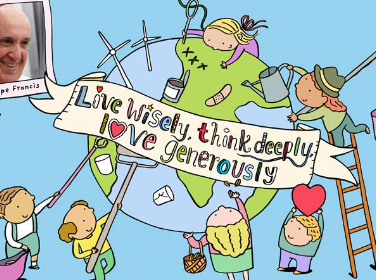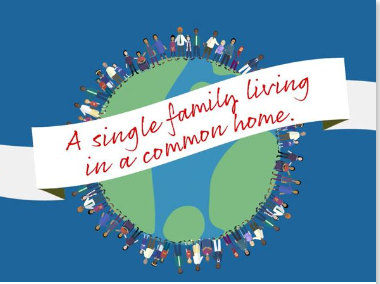Catholic Social Teaching (CST) is rooted in Scripture, formed by the wisdom of Church leaders, and influenced by grassroots movements. It is our moral compass, guiding us on how to live out our faith in the world.
Our faith calls us to love God and to love our neighbours in every situation, especially our sisters and brothers living in poverty. Following in the footsteps of Christ, we hope to make present in our unjust and broken world, the justice, love and peace of God.
Modern Catholic Social Teaching is said to have originated in 1891 with the encyclical letter, Rerum Novarum. Since then, a wealth of teaching continues to give new life to the Scriptures and shape the Church’s response to our modern world. Pope Francis’ continues to add to Catholic Social Teaching with his own encyclicals including Laudato Si’ (2015) and Fratelli Tutti (2020)
From these Catholic social teaching documents, at Holy Family, we use CAFOD’s 7 principles and introduce them through child friendly images which enables even the youngest children to understand the concept at their level.
To help us put our call into action of making the world the best possible place it can be, and as God intended it to be when He gave it to mankind as a gift, we often revisit the 7 CAFOD themes of Catholic Social Teaching.
In some of our assemblies we spend time reflecting on Sunday’s Gospel or issues that are arising in the world and discuss, contemplate and pray for guidance on identifying how CST can enable us to understand the outward show or action of our Catholic faith that will impact on many aspects of our life and, in turn, lead us to making an impact on the world so it can be as God intended it to be.


